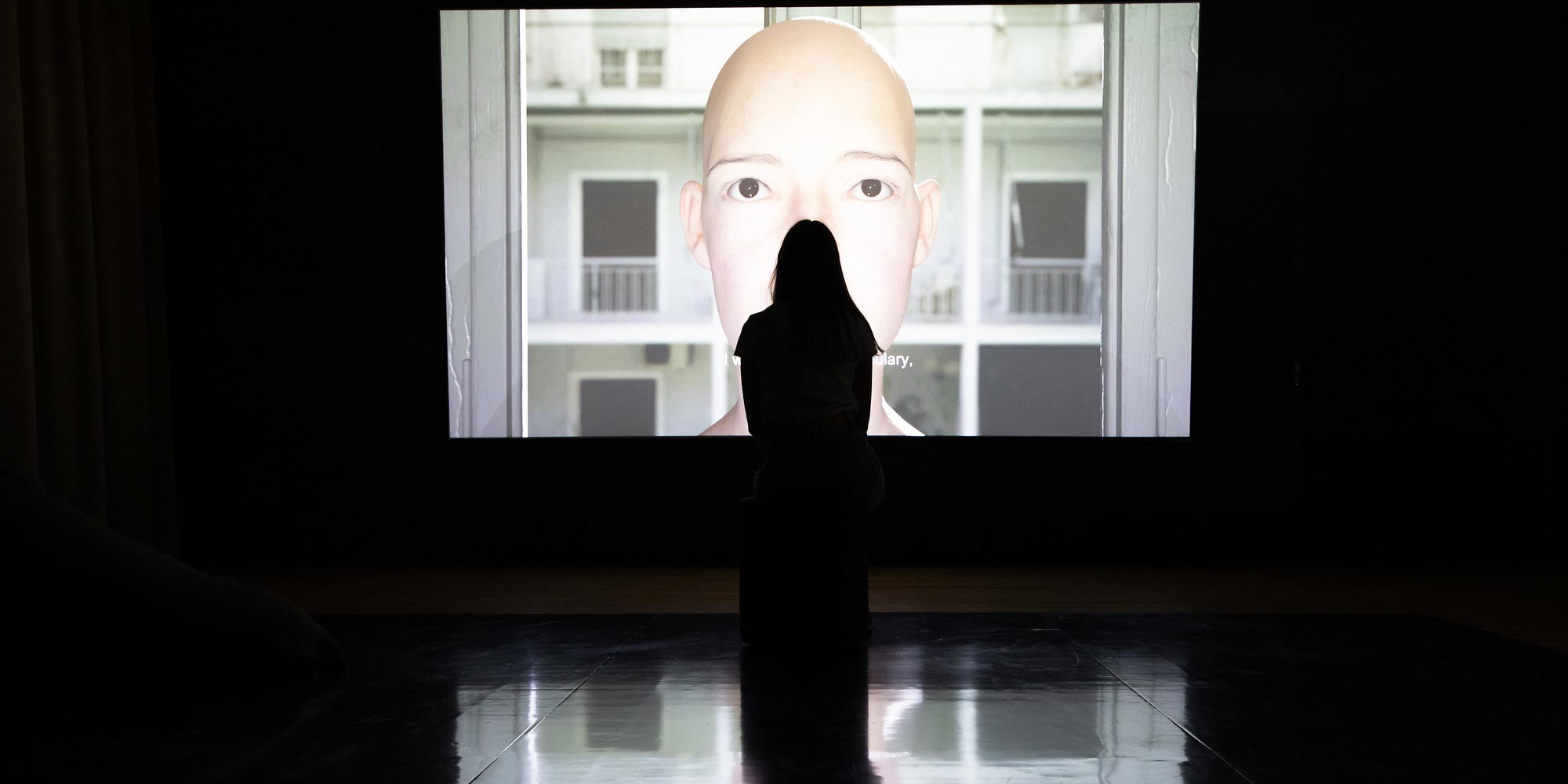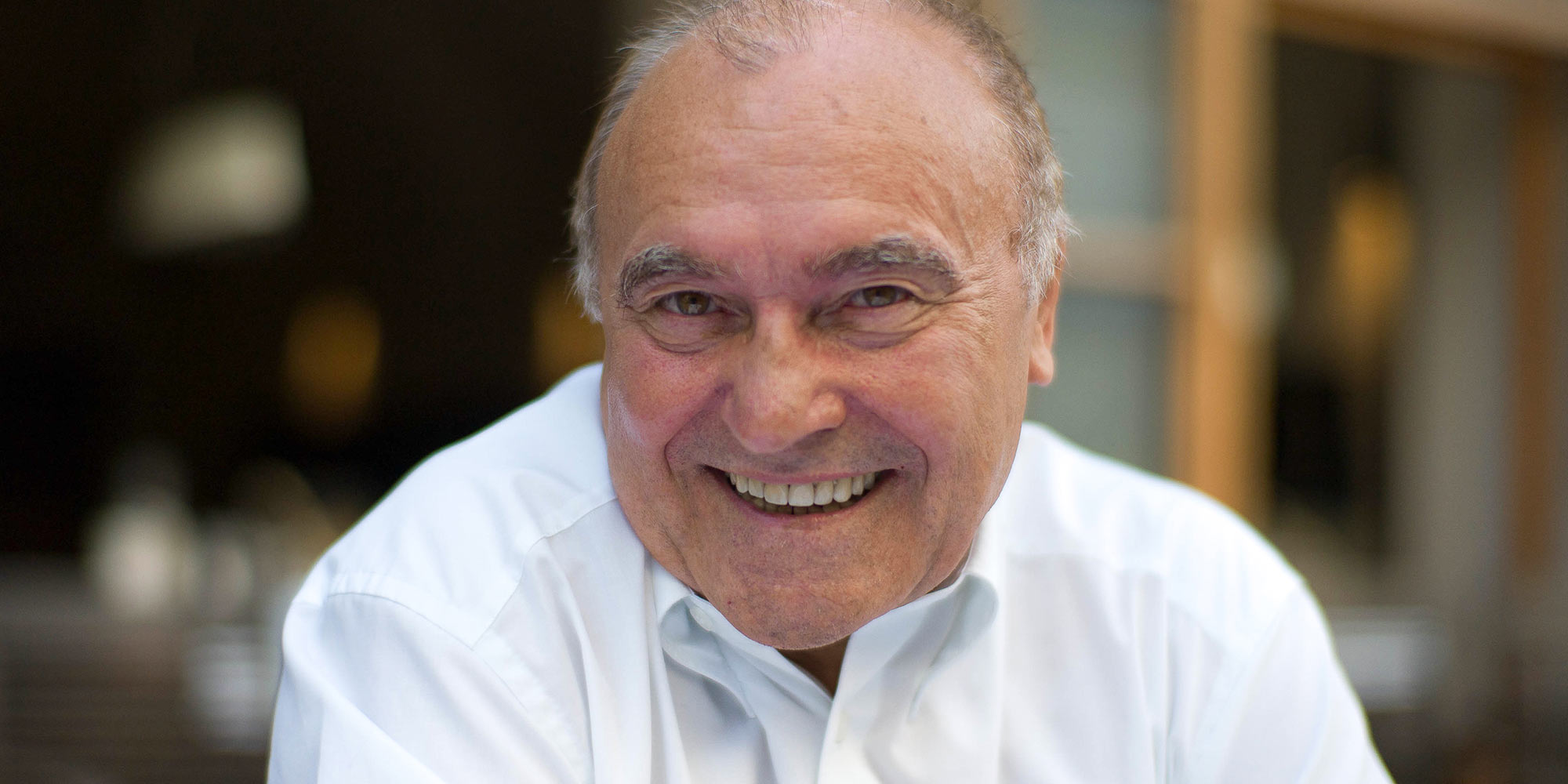Getting people interested in the future, inspiring, involving and motivating them – that’s what Hannes Leopoldseder has always exemplified for us. And that we at Ars Electronica and with Ars Electronica have to make a contribution to the fact that each of us feels responsible not only for our own future, but for the future of all of us, and that we should participate in shaping it.
On February 12, 2021, Hannes Leopoldseder, co-founder of the Ars Electronica Festival (1979), creator of the Prix Ars Electronica (1987) and initiator of the Ars Electronica Center (1996), passed away at the age of 80. We are not the only ones to mourn him. Many of his many friends and companions from all over the world sent us their condolences after this sad news but also told us stories about how they experienced Hannes Leopoldseder and how he inspired them again and again with the ingenious combination of art, technology and society.
Hannes Leopoldseder: Ahead of Time
“Der Zeit voraus” (“Ahead of Time”) is the name of the book in which we republished selected texts by Hannes Leopoldseder from the past 40 years. To mark the occasion, we’ve sorted them by year and made them available for reading online. “Hello and welcome to Ars Electronica Home Delivery – on a very sad day for all of us.” With these words, Gerfried Stocker, Artistic Director of Ars Electronica, greeted viewers of a discussion broadcast live on the Web with colleagues who have accompanied Hannes for many decades: Christine Schöpf, Horst Hörtner and Jutta Schmiederer.
Educational offers for pupils
Although the third “lockdown” in Austria ended in February 2021, we were not yet in a position to reopen the Ars Electronica Center to our visitors and restore the general conditions for the usual high-quality visit. With “Ars Electronica Home Delivery,” however, our “deliverers” continued to be on duty to engage artistically and scientifically with the future together with virtual visitors… and, of course, to entertain them a bit as well.
We have not allowed ourselves to be deprived of the playful and creative approach, the enthusiasm for new ideas and the goal of making them accessible to a broader public. During the period of “home schooling,” a number of digital offerings for pupils and teachers were also created at the Ars Electronica Center: For example, pupils were able to open the door to the world of artificial intelligence at least a first crack wide, they learnt more about programmable materials of the future and took a closer look at nothing less than the universe with their many questions. By the way, details on the various offers and booking can be found at https://ars.electronica.art/homedelivery/services/#education.
What is missing…
February 2021 was nevertheless a very difficult time for us. Each and every one of our colleagues, upon entering the Ars Electronica Center in these pandemic times, realized once again what the “Museum of the Future” is all about. And even though we always like to emphasize that this is a museum that listens, and that our infotrainers always have inspiring conversations with our guests, it became very clear what we were missing during these days here in Linz: The people. You!
Some create knowledge, others transfer it
Hasn’t the news about the ongoing pandemic turned us into scientists to some extent? We talk about viruses, incidences and the polymerase chain reaction. Polymer-what? In two videos from our in-house BioLab, our infotrainers took a closer look at PCR and how it is possible to copy DNA. (German language only)
With her lectures on the human brain, neuroscientist Manuela Macedonia never fails to captivate. The brain is complex enough, but for anyone who wants to take a look at the current state of research knowledge, the online lectures “Gehirn für Anfänger” (“Brain for Beginners”, German language only) and “Gehirn für Fortgeschrittene” (“Brain for Advanced”, German language only) are just made for you.
Musical travels
From Ludwig van Beethoven to Igor Stravinsky and Philip Glass. Music lovers once again got their full enjoyment out of the piano concerts by Maki Namekawa and Dennis Russell Davies. The duo produced atmospheric sounds live from the concert hall – or, to be more precise, from the Ars Electronica Center’s Deep Space 8K – which were staged by Cori O’Lan with his real-time visualizations.
If you don’t want to wait for the next Mozart, you’re in good hands at the Ars Electronica Center’s Open Sound Studio. During the museum’s closing time, sound artist Marco Palewicz once again paid us a visit and demonstrated on the spot during “Beat the Clock” what sounds can be created within ten minutes using Ableton’s sound software.
Refreshing Perspectives from the Ars Electronica Futurelab
It’s actually part of the job description of this lab and studio for systems of the future: Those who work at the Ars Electronica Futurelab always have opportunities to meet creative people and try out new techniques. To mark its 25th anniversary, we launched the video series “Inside Futurelab” to introduce the diversity of our work areas in a little more detail. In one of the first episodes, for example, we talked to Mike Jelinek, an artist, designer and senior product manager at Wacom, about the many aspects of sketching and the design process.
Hideaki Ogawa, Director of the Ars Electronica Futurelab, talked about what Art Thinking actually is and how media art can play its part in shaping the future in another episode of “Inside Futurelab”.
Gold for Ars Electronica Solutions
Being a little proud every now and then is something we are allowed to do. With the installation of the “Cubo Negro“, the world’s second Deep Space 8K in the new Materia Science Center of the Centro de Ciencias de Sinaloa in Mexico, the team of Ars Electronica Solutions received the Austrian Chamber of Commerce’s Export Award 2020. The award is not only an honor for us; we’re also pleased that we were able to establish this interactive presentation and experience space in yet another place in the world with the popular Deep Space 8K.
How digital progress is changing the world and the way we look at it was demonstrated by the exhibition “Global Shift” in Bregenz, Austria, which Ars Electronica Solutions developed together with the cultural department of the provincial capital of Bregenz. The focus of the exhibition was on the topic of climate in all its facets, for which it was awarded the Climate Protection Prize 2020 by the Vorarlberger Nachrichten newspaper.
Residency for Kyriaki Goni
The Greek artist Kyriaki Goni will take another look at the world and, in particular, at the interface between technology and society. She has been chosen as the winner of the Art Collection Deutsche Telekom Residency. The program is intended to give her the support she needs over the next three years to work even more intensively on her subject of this interaction in collaboration with the Linz Institute of Technology at Johannes Kepler University and Ars Electronica.

How it continues, in our annual review 2021, and which months we have already presented, you can find out in our playlist!
